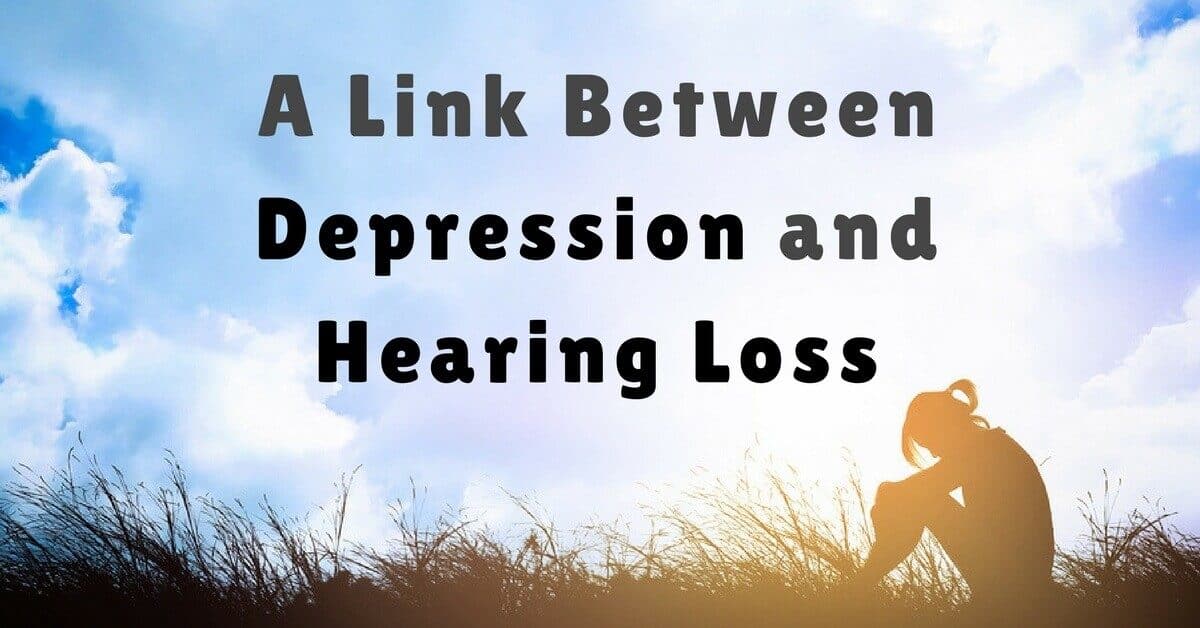Living with hearing loss is about far more than just straining to hear over the phone, or missing a few words in conversations. If you have hearing loss and you’re not wearing a hearing aid, you risk a surprising number of negative health effects. You’re more likely to develop dementia at a younger age, suffer from falls, and even risk your safety, both at home and on the street. Another link that may surprise you is the connection between hearing loss and depression.
Recent Research Shows a Clear Link Between Hearing Loss and Depression
A study by the National Institute on Deafness and Other Communication Disorders showed that 11% of people with hearing loss also struggle with depression, much higher than the average 5% of people in the general population who have depression. “It is not surprising to me that they would be more likely to be depressed,” says James Firman, president of the National Council on Aging. “People with hearing loss, especially those who don’t use hearing aids, find it more difficult to communicate with other people, whether in family situations, social gatherings or at work.”
Depression affects nearly 15 million Americans age 18 and older every year, many of whom live with this illness without seeking treatment. The average age of onset is only 32! Depression affects every area of your life, leading to feelings of loneliness, isolation, and difficulty communicating, both with friends and loved ones. Those with depression often struggle with a lack of motivation and energy, feel discouraged, and can become irritable and frustrated easily.
Social Isolation
There are a few factors in this link between hearing loss and depression, but the clearest is the social isolation faced by those living with untreated hearing loss. People with hearing loss tend to withdraw from society, and stay at home rather than face family and friends in new or uncomfortable situations. For those with hearing loss, it’s often a matter of communication. Not being able to hear, especially in crowded places with lots of background noise, can make people avoidant of social settings. People prefer to avoid asking someone to repeat themselves again, and it can be uncomfortable to miss the punchline of every joke. Those with hearing loss often choose to stay home rather than face these situations, and become socially isolated. Lacking good communication and a healthy social life, they’re far more at risk of developing depression, and struggle with feelings of loneliness and helplessness.
The Stigma of Hearing Loss
If people are unhappy, struggle to communicate, and even develop depression, why don’t more people seek treatment for their hearing loss? Unfortunately, many people feel a stigma around hearing loss, don’t want to admit they have problem, or wear a hearing aid that will make them seem old. What many people don’t realize is that hearing loss can affect people of all ages, not just seniors. Many younger adults, and even children and teens, struggle to hear, and would benefit from treating their hearing loss.
Hearing aids of today are beautifully crafted, discreet devices that are designed to enhance your life, not draw attention to your hearing loss. They sit snugly behind your ear, in your outer ear, or even completely inside your ear canal. These devices are so tiny they’re nearly invisible! Modern hearing technology has created powerful hearing aids that can fit within tiny cases for the best in discreet hearing solutions. No one will notice your hearing aid, but everyone will notice how well you can hear.
At My Hearing Centers, we’re working tirelessly to break down the stigma of treating hearing loss, and we want to make these life-changing devices available to everyone who needs them. Whether you’re struggling with depression, or are afraid that your hearing loss is isolating you, take a few minutes to have a hearing test and learn more about the hearing aids that could change your life.
If you’re ready to take the first step in hearing health, get back to clear communication, and safeguard your mental health, visit our friendly and supportive team at My Hearing Centers today for a hearing assessment and consultation. We’ll discuss all your treatment options, and find the device that matches your needs and lifestyle, so you can get back to the things you love without worrying about your ears.


